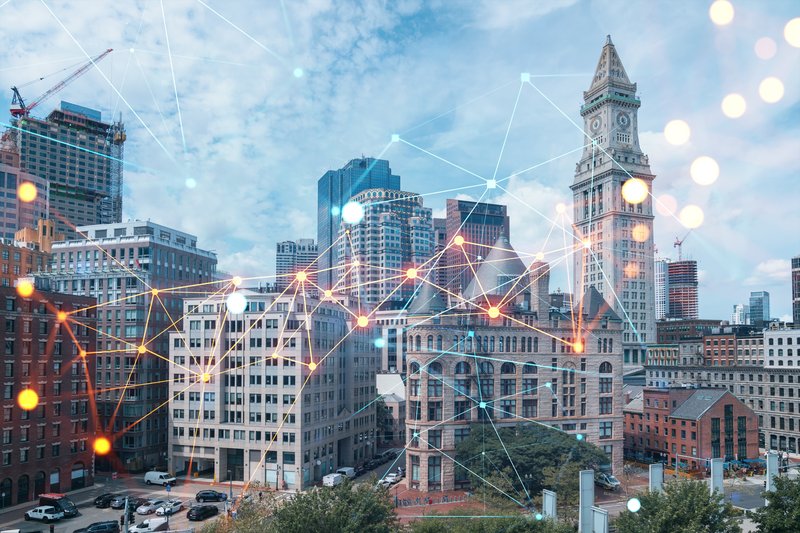Meeting the AI Moment: New America’s Civic AI Summit
Blog Post

VideoFlow via Shutterstock
Oct. 21, 2025
Last week in Boston, New America's RethinkAI initiative brought together leaders from local and state governments, universities, civil society, and corporations for the Civic AI Summit: a day dedicated to reimagining how artificial intelligence can serve the public good. At a moment when governments at all levels grapple with how to harness AI responsibly, the summit catalyzed shared learning and honest dialogues about the opportunities and challenges ahead.
A New Vision for Public AI
The summit prompted attendees to go beyond viewing AI as a tool for efficiency and instead place people at the center of how governments leverage technology. This vision, detailed in RethinkAI's new report, Making AI Work for the Public, seeks to improve the relationship between governments implementing the technology and the communities they serve. Rather than reinforce the status quo, the report’s proposed framework guides civic partners to build more responsive public institutions by
(1) adapting to the amplified demand AI unleashes,
(2) building shared civic infrastructure that enables genuine listening at scale, and
(3) cultivating two-way accountability that deepens public trust.
The day opened with welcome remarks from Lilian Coral, vice president of technology and democracy at New America; Neil Kleiman, senior fellow and professor at Northeastern University’s Burnes Center for Social Change; and Eric Gordon, director of the Center for Media Innovation & Social Impact at Boston University. They galvanized attendees for panels and breakout sessions dedicated to AI implementation that increases transparency in government, deepens public engagement, and shifts power back to communities.
Learning from Practice
Participants heard directly from practitioners who are implementing AI to improve communities’ well-being. A morning panel on "Civic AI in Practice," moderated by Mai-Ling Garcia, director of emerging technologies and AI at Johns Hopkins University’s Bloomberg Center for Public Excellence and Government Innovation, featured insights from community leaders and government officials, including Shin-pei Tsay, Chief of Research and Data for the City of Boston. Panelists highlighted trust and meaningful community engagement as both opportunities and barriers to unlocking civic AI’s potential to put people’s needs at the center of technological advancement in public life.
An afternoon session, "Who's Who in the Ecosystem of Civic AI," showcased the breadth of organizations working in this space and how they’re partnering with public and private institutions—from U.S. Digital Response, a nonprofit that supports governments in meeting the needs of their people, to Partnership for Innovation, a coalition creating opportunities for people across the South to thrive in the innovation ecosystem.
Amen Ra Mashariki, director of AI and data strategies at the Bezos Earth Fund, shared how the foundation wants to catalyze advanced AI technologies that can have on‐the-ground impacts in climate and nature. Mashariki encouraged attendees looking to leverage AI for public good to think of it as an invention like the telescope. The telescope helped us know things that were previously unknowable about our universe. Similarly, AI, applied creatively and responsibly, can help us make sense of data we couldn’t make sense of before.
Through workshops and lightning talks, participants explored the opportunities and barriers to implementing more civic AI into their own work, including
- Building and maintaining trust in both government and technology
- Augmenting government capacity not just to improve efficiency but rather to surface deeper problems, blind spots, and possibilities
- Establishing appropriate data governance and management foundations for AI use
- Identifying the human, institutional, and governance challenges that come with adopting AI at scale
- Navigating how technology intersects with policy, politics, and departmental silos across the government
Looking Ahead
Participants left the summit with new connections and a renewed energy for civic AI. The ideas sparked at the event will inform AI development, implementation, and adoption that serve the public interest.
To learn more about the civic AI framework presented at the summit, check out RethinkAI’s report Making AI Work for the Public.